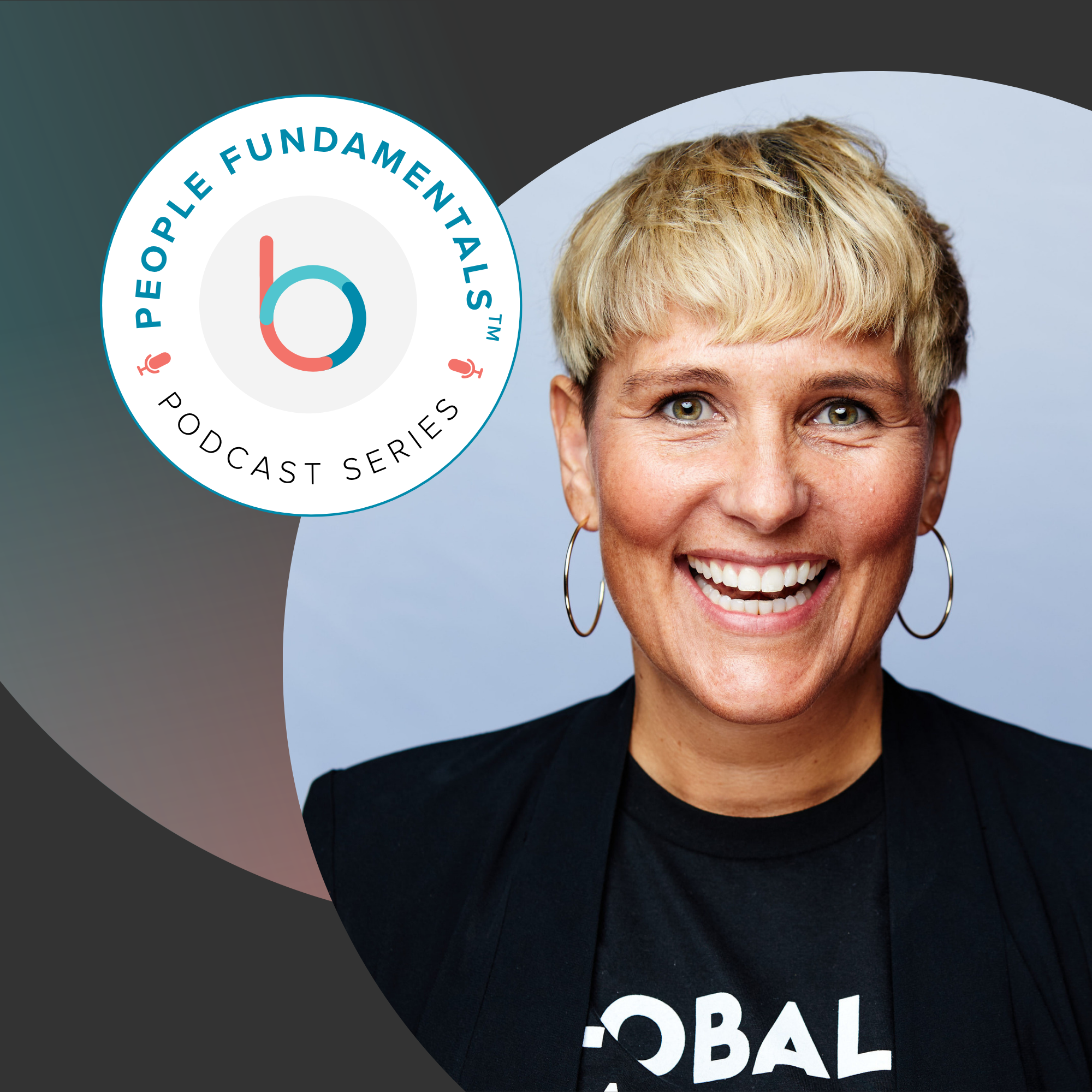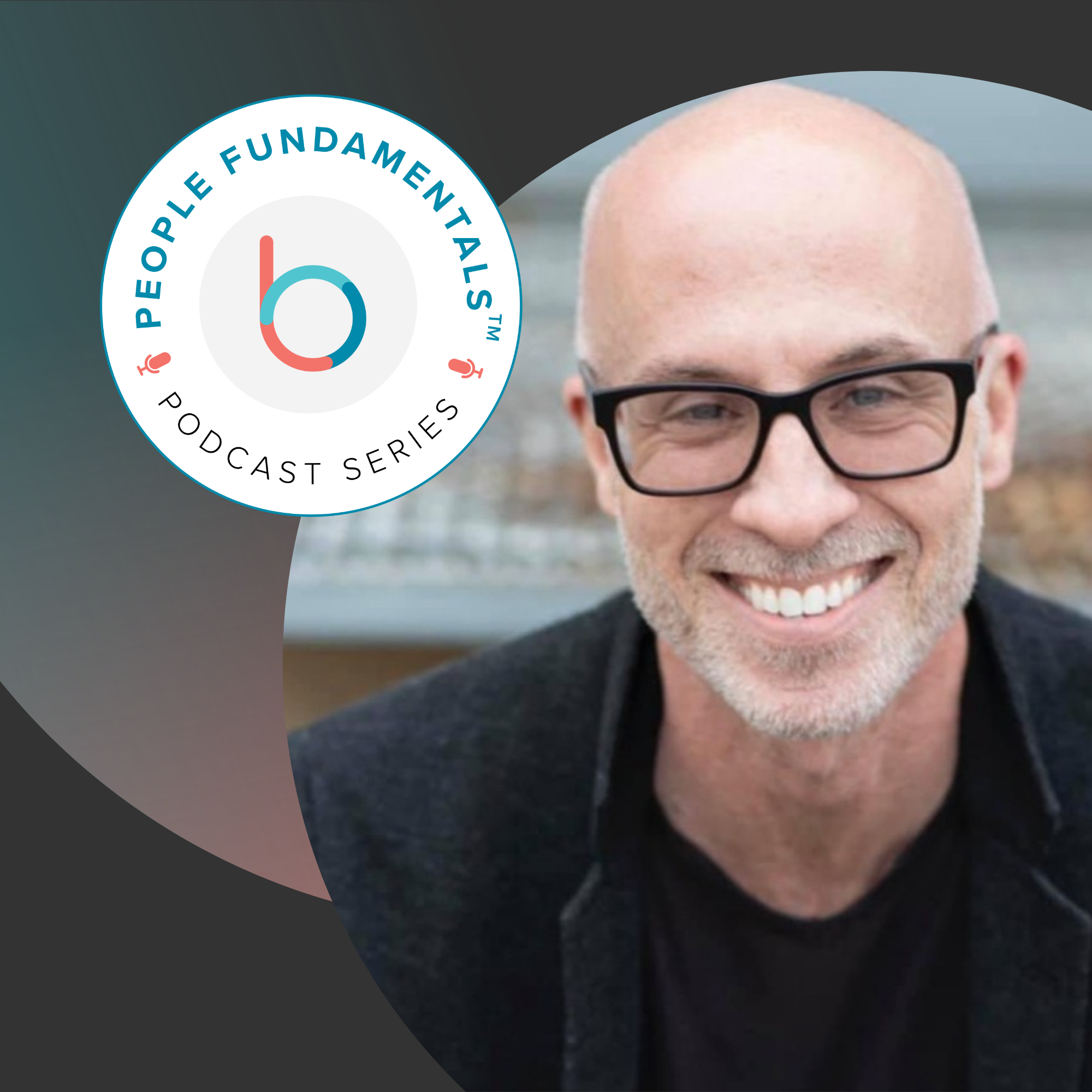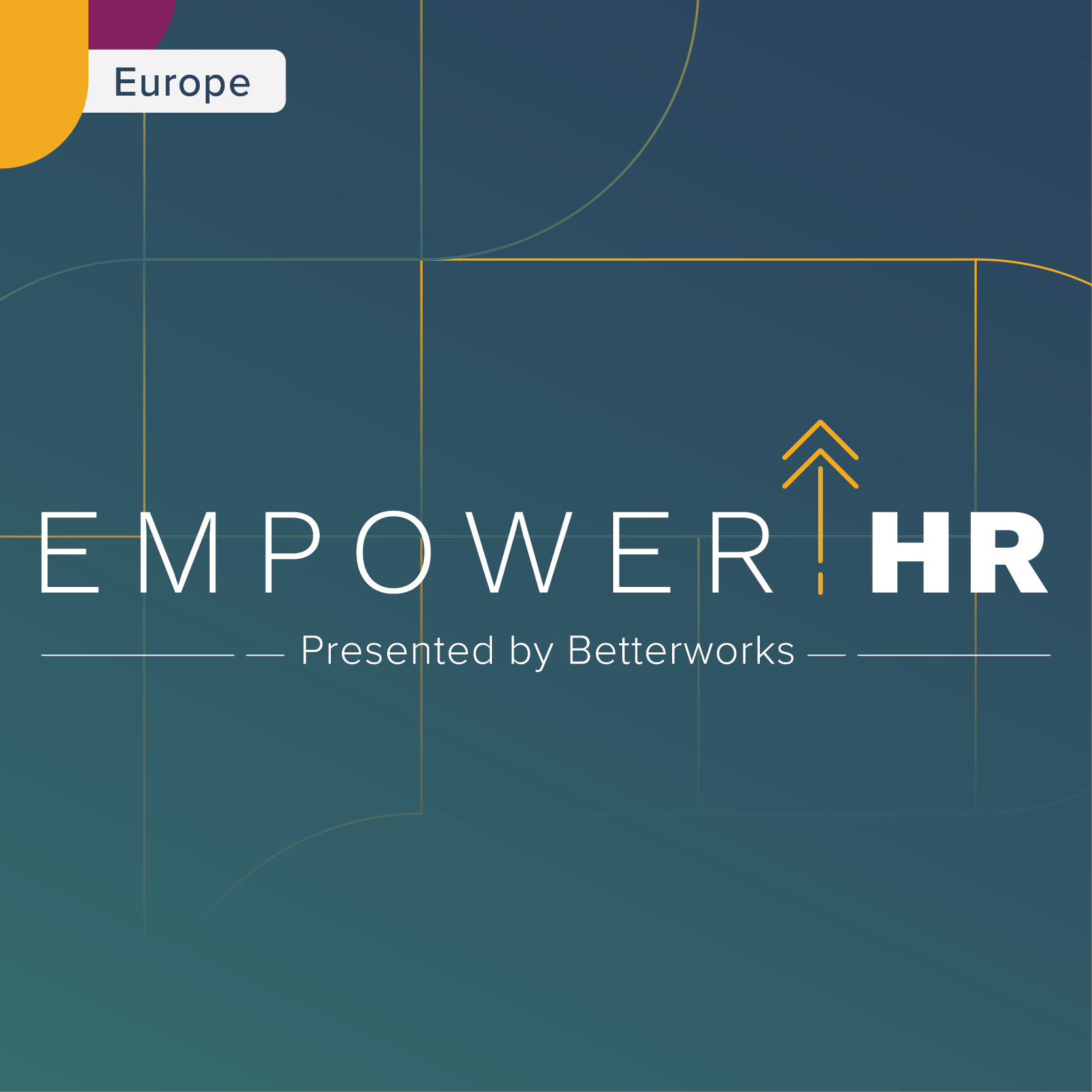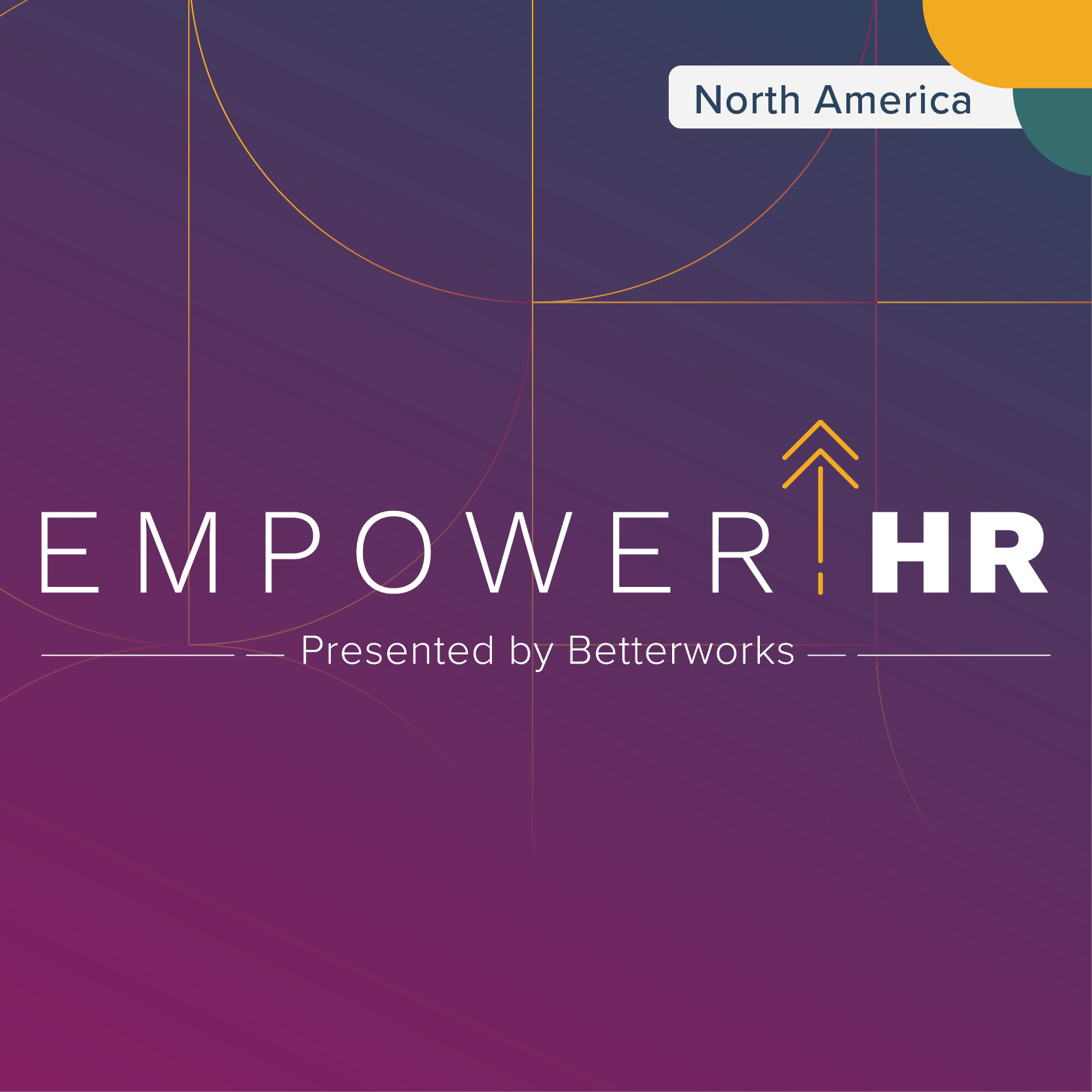On this episode of People Fundamentals, I’m joined by Thera Martens, vice president of embedded analytics and partnership marketing at Visier. Thera knows a lot about HR technology — but she knows a lot about HR leaders, too, and recognizes that many people go into HR because they love empowering people. But the volume and complexity of HR technology today, and the mountain of data it generates, can be overwhelming.
That’s why she’s thrilled about the possibilities of generative AI. “It’s really going to democratize that data so that more people in the HR department can use it and understand it without having to have their analyst buddy being available to do the explaining for them,” Thera says.
But Thera’s vision doesn’t end with the HR team. Her ultimate goal is to put the right data in the hands of the people who make business-critical decisions on a daily basis: your managers.
In this conversation, recorded live at UNLEASH America 2024 in Las Vegas, Thera shares her take on the importance of managers and ways you can support them better.
Listen in as we explore ways to empower managers through better analytics.
Subscribe wherever you listen to podcasts: Apple Podcasts | Spotify | YouTube Music
Invest in better support for managers
Managers are the linchpin of employee productivity. That’s why Thera underscores the importance of proper training and support to help them lead their teams more effectively, and for HR leaders to engage with managers more often. “Managers are the drivers for an organization and for teams, and I think it’s critical to have a lens on what they’re doing,” Thera says.
Thera recalls her early managerial experiences to illustrate the importance of proper training and support. “When I first managed a team, the very first thing I had to do was interview to build my team out, and I had never interviewed before,” Thera says. “And I was actually really blessed to have a partner in HR who did the first interviews with me.”
This partnership not only gave her the essential skills she needed but also laid a solid foundation for her managerial career — and highlights how crucial HR support is in training new managers and making sure they’re well-prepared to step into their roles with confidence.
Deliver data-driven insights directly to managers
GenAI tools can streamline the process of accessing and interpreting data, Thera says, which is crucial for busy managers who need timely insights. This direct access to data allows managers to quickly gather the information they need to make strategic decisions without waiting for data analysts to interpret it for them.
With advances in AI, making data available across the business is easier than ever. “Almost everyone in the world knows how to use a chatbot. We’re texting, we’re Slacking, we’re in Microsoft Teams, and everyone knows how to ask a question in that format,” Thera says. “It’s just going to allow for so many more individuals to get access to the data and to make decisions with it instead of it being siloed with people who really understand how to read charts and data.”
Train managers to interpret and apply data
Analyzing, interpreting, and applying data-driven insights is a big responsibility, though, so make sure your managers feel supported as they embark on this journey. Provide training to help managers understand what they’re looking at. “For your average manager that is not coming from an HR technology background,” Thera says, “you do need to enable the managers to understand what they’re reading because there’s a high degree of interpretation.”
Thera recalls a time when a panic-stricken business leader pointed to a 34% turnover rate for the quarter. But a little digging into the data revealed that the numbers were skewed by a co-op term that had just ended, resulting in the planned exit of 18 developers. “Our turnover number was actually a lot better than what it was the previous quarter,” Thera says. “But without that kind of training and diagnosis, someone who’s not in HR may make assumptions about the data that are not correct.”
With the right training and support, however, managers can learn to confidently apply AI-supported insights to drive higher performance on their teams.
People in This Episode
Thera Martens: LinkedIn
Transcript
Thera Martens:
Managers are the drivers for an organization and for teams, and I think it’s critical to have a lens on what they’re doing. A number of different things come to mind. I can think for myself when I first managed a team. The very first thing I had to do was interview to build my team out, and I had never interviewed before, and I was actually really blessed to have a partner in HR who did the first interviews with me, and I started to build my questions and my repertoires and being able to read people.
Ashley Litzenberger:
Hello, everyone, and welcome to BetterWorks’ Podcast, People Fundamentals. I’m your host, Litzenberger, Senior Director of Product Marketing. BetterWorks core belief in People fundamentals revolves around helping HR lead through constant change by focusing on core values like fairness, support, balance, and enabling growth opportunities for employees. These tenets empower everyone in the workforce to strive for excellence, to foster creativity, and to acknowledge each other’s contributions. BetterWorks believes that strategic HR leaders can translate these principles into action, shaping their workforce for the better and helping drive meaningful business outcomes.
In this episode, recorded live at Unleash America 2024 in Las Vegas, we’re talking about boosting workforce productivity with our guest, Thera Martens. Thera is the Vice President of Embedded Analytics and Partnership Marketing at Visier. She shares her insights on how HR teams can really make a difference in employee productivity and how important effective managers are in driving performance.
Thera discusses the challenges and strategies behind measuring productivity across different roles in industries, and she explains the importance of setting clear goals, how AI can democratize data for HR teams, and how Visier is using these technologies to boost productivity. We hear about everything from understanding what makes productivity effective to implementing AI tools that empower both managers and employees, and she goes beyond just tools and metrics. Thera also provides practical advice on training managers, fostering mentorships, and making sure that individual contributions align with organizational goals. Through her insights, she shows us how strategic HR practices can significantly improve both business outcomes and the overall employee experience.
So join us as we explore how to enhance your organization’s productivity and bring your workforce together towards common goals.
Hi, Thera. It’s so wonderful to have you on our show today, and before we really dig into it, I want to start by setting the stage with a very basic question. What is productivity to you?
Thera Martens:
Thank you so much for having me. At Visier, we talk a lot about productivity as well, and I think it goes back to there is a baseline of something and you need to do better than that. So I often think about our friends in B2B sales. They’re the absolute easiest ones to measure when it comes to productivity. Are you hitting your pipeline and revenue targets? Developers are another great one that are really easy to measure. Are each of your developers shipping X number of packets of code based on their seniority? So I think for everyone who’s thinking about productivity, you’ve got to have that baseline, “What am I actually going to measure and what am I actually trying to get to?”
Ashley Litzenberger:
Yeah, I think that’s really valuable because when you think about what productivity is or what effective productivity is, it really is different based on someone’s role and based on someone’s industry. So a productive doctor isn’t necessarily a doctor who completes a lot of operations, it’s a lot of successful operations or someone who is working in, I don’t know, a different field. Let’s talk about bus drivers. It’s not how fast can you get to the bus stops, but maybe it’s how reliably do you hit those things and how are you, maybe hit was not the right word to use in that conversation, how reliably do you make it to the correct bus stop on time to meet your rider expectations and how safely and smoothly do you deliver a ride. It’s really hard for HR managers to figure out what to measure because it’s not just about volume, it’s also about quality, and you need to work really closely with your business units to figure out what is it that we’re actually measuring to make it meaningful and to get folks focused on the right output that you’re looking for.
Thera Martens:
Yeah, and to add on what you just said right there, I think a lot of it goes back to goals of the organization and then how those goals ladder up into the different departments as well because I’m sure all of us listening right now have worked at organizations where the where we’re going hasn’t been clearly defined, and how are you supposed to measure productivity, how are you supposed to measure how teams are performing when nobody really knows where they’re going. So I think that’s a great add to what you just said.
Ashley Litzenberger:
Yeah, so productivity, what is productivity? The answer is it really depends based on your organization and your business unit and your role, but it’s somewhere along the lines of measuring the quality of your output and the volume of your output, getting to the desired outcome that you’re looking for.
How does manager effectiveness fit into productivity? Because I personally have known that sometimes managers can be a great inspiration and motivator for employees, and they can also be a big detractor. So when you think about manager effectiveness, how does that relate to productivity, and then do you have any advice on how to help managers be more positive levers in driving productivity in the workforce?
Thera Martens:
Yeah, absolutely. So I think managers are the drivers for an organization and for teams, and I think it’s critical to have a lens on what they’re doing. A number of different things come to mind. I can think for myself when I first managed a team. The very first thing I had to do was interview to build my team out, and I had never interviewed before, and I was actually really blessed to have a partner in HR who did the first interviews with me, and I started to build my questions and my repertoires and being able to read people.
When you start to have managers, you need to make sure that you have to have that training for them. So it could be hiring, it could be having pay conversations. A brand new manager may be like, “Yes, sure, I promise you a raise next fiscal. I promise you a promotion,” and they may not understand the realities of a business that you get raises and promotions when the business is doing very well, when you’re exceeding expectations in your role. So those are just two examples of when I think about manager effectiveness. It has to really be tied to goals that the business have, but also making sure that we are helping train our managers to be good at their jobs as well.
Ashley Litzenberger:
That really resonates with me. I have a really good friend who’s a chemical engineer, and he’s been an individual contributor for many years, and he just moved into managing a team. He was complaining to me because he said he reached out to his manager for some manager training and he said that their HR team didn’t have any. He works for one of the top pharmaceutical organizations in the country, and I simply can’t imagine that their HR team doesn’t have some manager training of any kind, but I can believe that his manager who’s been in seat for 25 to 30 years probably doesn’t know about it.
So I think one of the big things that HR teams miss is not just having the manager training programs, but making sure that managers and that managers of managers, particularly those who have been in seat for a long time, know about the resources and are pushing them out to folks who are moving into those promotions or maybe figuring out your own internal enablement process to be able to say, “Oh, someone just got promoted into a management role for the first time. That needs to trigger a series of emails or outreaches to put them into or to make them aware of the resources that we have put a lot of time into building and creating.”
Thera Martens:
Yeah, absolutely, and I think mentorship is another important one, and especially when you have brand new people managers. Having someone who is a seasoned manager, understands the mechanics of working with a team, having that mentorship, I think, is really important as well.
The other thing I’d add as well is one of the big trip ups is making people who are not interested in being a manager, managers of people. Visier recently did a poll on LinkedIn, and it said that Gen Z is less interested in becoming people managers than some of the previous millennials and Gen X, et cetera. The reason for that is they don’t want the stress, they don’t think they’re going to get paid accordingly. I think it is really important. All of us have stories of having managers in our previous roles that had no interest in being people managers, whatsoever. Actually finding those performers who actually have an interest in being people managers and running teams is important because if someone’s not interested, you’re never going to get the coaching, the mentoring, and the stuff that a team needs to be successful.
Ashley Litzenberger:
Well, I want to switch over to a slightly different topic, but it leads into manager effectiveness because we’re all talking about how artificial intelligence is changing the workplace. It’s changing the type of work that people do, and it’s changing it for HR managers, but also individuals and people in the workforce. So I’m curious, how should HR teams think about using AI? I’m curious what you think about that internally within their teams, but then also among the workforce, and maybe any anecdotes from your experience as a manager.
Thera Martens:
Yeah. I think AI for HR teams is going to be absolutely fantastic. We have to understand that for many individuals that have gone into HR, they went in because they love working with people. They love how an organization works together and they may not have necessarily come in, be it with the brains of being analysts, understanding how to number crunch spreadsheets and so on and so forth, but HR is also in a position now where they’ve been given all of these very expensive tools to make them operationally efficient.
We’ve got talent acquisition modules. We’ve got HRIS modules. We’ve got all the different solutions like BetterWorks, which helps through the talent management lifecycle. There’s a lot of data that’s housed in there, but not everyone is going to be literate. I think the beautiful thing about GenAI, Visier has a solution called V, is that it’s really going to democratize that data so that more people in the HR department can use it and understand it without having to have their analyst buddy being available to do the explaining for them.
Everyone, almost everyone in the world knows how to use a chatbot. We’re texting, we’re Slacking, we’re in Microsoft Teams, and everyone knows how to ask a question in that format. It’s just going to allow for so many more individuals to get access to the data and to make decisions with it instead of it being siloed with people who really understand how to read charts and data.
Ashley Litzenberger:
It’s so interesting. I’ve seen the evolution of HR tech over time and over the last, let’s call it 25 years, we’ll go back to 2000, the HR tech space was relatively small and it’s grown. You’ve gone through talent management, talent acquisition. In the last eight years as companies have dealt with remote and hybrid working situations, the amount of software and infrastructure that HR teams are using has just exploded, and that leaves a level of complexity, but it also creates the opportunity for incredibly rich data.
You’ve got a number of different additional softwares that can pull the data together and actually bring in data from multiple different sources, but what’s been missing up until now has been the ability to empower individuals on HR teams to actually ask questions of that data and get reliable answers. I think that’s a place that AI is really becoming powerful for internal use for HR teams.
On the other side, what about being deployed among the workforce? How are you using AI as a manager and how do you see AI actually being able to positively influence workforce productivity?
Thera Martens:
Yeah. One of the things I’ll share, so Visier, I think we’re about at 500 employees right now, and we’ve got three HRBPs divided amongst all of our departments, and they are incredibly busy all the time, and I love working with my HRBP, but when I want to understand what’s going on with my team, it takes a little bit of time for him to go away. In my case, he gets to use Visier, but going into Visier, getting the data and then us finding time in my very busy calendar to have the meeting where we go through and look at some of the metrics that I’m looking at my team with.
With AI, one of the things that Visier is doing, we’re kind of drinking our own Kool-Aid or eating our own dog food, depending on what metaphor you like better, but they’re starting to roll out using our GenAI solution, giving that data directly to managers. So the one thing is is I do need as a manager a little bit of training on what these HR metrics are and how to read and understand what they mean.
I have the benefit from working at a people analytics company, so I am writing marketing materials all day long about it, but for your average manager that is not coming from an HR technology background, you do need to enable the managers to understand what they’re reading because there’s a high degree of interpretation.
So I’ll share a fun example with you. A few years ago, our former CEO came running into our CHRO and he’s like, “Oh, my gosh, I just looked at our turnover number and it is wildly big this quarter. What the heck happened?” He was very nervous, and our CHRO was able to go into Visier and click through a little bit and he’s like, “Oh, yes, we are. That number is really high. 34% is too much for us,” but as he was able to dig in and diagnose with the numbers, a co-op term had ended, and so there was 18 developer co-ops that left the company, and so our turnover number was actually a lot better than what it was the previous quarter, but without that kind of training and diagnosis, someone who’s not in HR may make assumptions about the data that are not correct.
So for anyone listening today who is thinking about rolling out GenAI and starting to roll out managers actually getting to see HR data, you do have to have that plan in place on, a little bit of training so that everyone understands what the data actually means and is not making up stories that are not actually correct with the data.
Ashley Litzenberger:
Yeah, and that training can be in-person, it can be live, but it can also be prerecorded-
Thera Martens:
Absolutely.
Ashley Litzenberger:
… and something that you access and then you get sign off on before you get access to the data. I’m really curious. What are two or three of the data points that you as a manager find really valuable to look at to understand what’s going on in your team?
Thera Martens:
Yeah, absolutely. So I mean, the real obvious one is engagement. Engagement is also an interesting one though because sometimes it is a strategy for HR to actually throw an engagement survey in right after raises and promotions is half in because you might get your team members being at their most vulnerable, either because they’re very happy or they’re not happy that they didn’t get a raise or promotion. So you get a lot of feedback that way, but I want to understand who’s filled out the survey, how are they scoring. I also have those actual conversations with my team members as well.
I think also some of the questions around like, “Do they understand the goals of the organization? Do they feel that they can see themselves being contributing to the goals of our team and our organization?” There’s some things, a very busy manager, sometimes I can’t remember during pay cycles when’s the last time I’ve given a team member a raise or promotion, what was their bonus six months ago, what did I rate them six months ago. If you have a very large team of some people, hopefully you don’t have teams of more than seven or eight people into a direct report, but some people have 20 people, and how are you going to remember how you rated them six months or a year ago?
So some of that information really helps me when I’m doing ratings and promotions for my team as well, what I did before, are they tracking to that, have they knocked it out of the park this year and I want to be able to reward them in a different way. I also think when we think about OKRs, there’s the company level OKRs, there’s departmental OKRs, and then there’s how the teams are working towards those. I want to see the data on how my team is believing that they’re working to their OKRs, and then we’re actually looking as well how are we actually tracking to those OKRs so that I can steer the team accordingly.
Ashley Litzenberger:
Yeah, those are really great. I’m just thinking about my experience as a manager. The things that have been most helpful from a data perspective or from an information perspective is, first, having a place where your direct reports can clearly document how they appreciate receiving recognition. If it’s public recognition, if it’s in the form of bonuses, if it’s private recognition, what is the actual thing that’s most valuable to them, and then having it there for reference so that I can go back and remember who prefers what style of recognition for the work that they’re doing and align it with that so that I’m not giving someone public praise or private praise when they really prefer the inverse or something else.
The other thing that I think has been really valuable for me is not just the annual engagement surveys, but having a company that deploys pulse surveys. The questions that I often really appreciate as a manager are, “Do I understand what the goals of my role are? Do I feel like I’m supported and empowered to execute against them, and am I getting adequate support from my manager?” I actually really do ask our HR team to put those three questions in.
What’s interesting is that when I find that the answers to those are not what I want them to be for my team, I will actually proactively schedule skip level interviews with my manager for my direct reports so they can have those conversations, and then they can give that feedback anonymously to me to understand what can I be doing better as a manager, who do I need to clarify roles and responsibilities with or what’s missing in terms of supports, and is that something that our company can actually provide or are we in a place of budget cuts or we aren’t able to expand our team, and can I provide that additional context. So those are some three specific questions that I as a manager have appreciated my HR team being able to give me direct feedback on and then work with my manager to delve into when the answers aren’t what I hope they would be.
Thera Martens:
Yeah, and one thing I will add to that one as well, when we start to get from, often companies had surveys once a year and then it was twice a year, there’s a lot of quarterly pulse surveys now that are happening, and one thing that I’ve found really effective with my one-on-ones, with teams as well is I start off our one-on-ones with, “Give me red, yellow, green. How are you feeling this week?” Even if they’re green, I say, “Why are you feeling frigging awesome this week?” and when it’s red, it’s like, “What’s going on? How can I provide help? How can I provide guidance? What’s going on that you’re having a rough week?”
Then the yellow in between as well we’re asking what’s going really well and what’s going not, and that really helps me guide our one-on-one conversations so that it’s just not very tactical, “Please review my blog post. Your social media posts go out. How is that go-to-market strategy coming?” but we’re actually getting into how they’re feeling as well because we do know, and then there’s been a multitude of surveys as well out there that say that happy employees and engaged employees will be more productive. So that’s one tactic that I use to keep on the pulse on a weekly basis or on the one-on-one cadence that I might have with my team.
Ashley Litzenberger:
Sure. I like that. Those are some good tips. I’m thinking more about how we’re deploying AI amongst our workforce. When it comes to performance management, I think AI is really coming into a lot of performance management technologies. BetterWorks is one of them, but there are a number of performance management solutions out there that are bringing AI in. So when we talk about using AI in HR for our teams and also for our workforce, what are the questions that you need to ask when thinking about what are the right AI tools to be adopting?
Thera Martens:
Yeah, I mean, I think your bang on. I always use the example if my team, “Please don’t drop our pricing and packaging into ChatGPT when you’re writing an info sheet because we don’t want a very savvy person at a competitor to be cruising ChatGPT one day.” I think there’s a number of options, but it’s a little bit based on the maturity of your organization with AI. A very mature organization might’ve actually trained in ChatGPT their own bot, and from a marketing point of view, there’s very cool stuff you can do. You can train it on your brand language, you can train it on all these things, and it becomes a safe space for company information to be dumped.
Ashley Litzenberger:
And I’ve seen the same thing for HR teams, creating an HR bot saying, “Here’s our employee handbook. Here are our policies,” and creating a space for managers to be able to or employees to just ask questions and get answers from your actual policies without reaching out to an individual on your team.
Thera Martens:
Yeah, exactly, and I think a very mature company right now will be thinking about those personalized bots for an organization, but I think when you are an organization and an HR team that’s starting to bring AI and GenAI into your day-to-day, it is really important to sit down and have that plan and think about some policies, have some folks experimenting a little bit, but then what did you learn from those experiments and think about how you want to actually roll that out to the broader HR team or to people managers across your organization. So it does have the same way when you’re rolling out a new piece of software. Any number of things, you want to have that framework in place so that everyone knows how to use it and how not to use it.
Ashley Litzenberger:
Yeah. All right. I have a question for you because we are talking about boosting workforce productivity and employee productivity. We’ve all been in roles throughout our careers where we’ve been really stellar high performers and super engaged, and we’ve all been in experiences where we’ve been not the strongest person on our team. Maybe we’re disengaged, maybe we’re not feeling effective, maybe we just are a low performer in that particular role because it’s not the right fit. I’m curious, what are those contributors that have led you to be a star employee versus led you to become disengaged or led you to underperform and not hit your goals?
Thera Martens:
Yeah. I think when I’ve been highly engaged and when I’ve been highly effective, the company has had a very clear goal and we’ve had a north star of where we’re going to. My department and then my manager had a very clear plan for us to work up to that company goal. I was also very motivated by where we were going as well, and that made me do the best work I’ve done in my career and feel like I’m really part in contributing to the organization’s goals.
Earlier in my career, I’ve had company goals that seem to shift every quarter and every month. I’ve had a manager scrambling to a little bit of a shiny object, liking where they’re steering us this way, then they’re steering us this way. They want all the things. They’re not able to say no and keep us focused on the direction that we’re going, and that made it incredibly challenging.
After a certain amount of time, there’s disengagement. My lunches got a little longer. I started going for cookie breaks in the afternoon. I really do think that when there is a clear goal and vision and that you can see that line from me being an individual at that time right through to the company goals, that it really is an effective way of making people feel valued and excited about what they’re doing. Even if it is a little bit mundane or not necessarily the most exciting work, you might still see how it’s helping the business.
Ashley Litzenberger:
As someone who works in the HR tech space, I have some strong conflicting feelings around goals and OKRs where I didn’t know what the goal of the company was, where I didn’t know what I was trying to work for, and I didn’t really understand if I was having an influence on the business or not. Going over to a company that was very clear at every company all hands in any document, easily referenceable, “Here are the three to five strategic goals of our company this year,” and asking you, asking every employee to figure out, “How does the work that I do ladder up into those goals?” that really transformed the way that I could feel like my work was valuable and important.
So it’s really hard to activate around goals and OKRs, but at the baseline, the difference between having them and not having them in terms of transparency and clarity for your entire employee base, I think it’s transformative. Then the details of how do you actually turn that into something that is updated on a weekly or a quarterly basis to get that data and to get that insight, that’s a whole another question, but I think the value of having them yes versus no is very clear to me.
Thera Martens:
Yeah, and I think the communication becomes so important because we’re in a volatile moment in the market right now, and goalposts are changing all the time, and businesses do have to be nimble and be able to move, adapt what their strategies are based off of what’s going on in their business, but I think when there is that clear line and then the weekly and monthly check-ins and communication, when there is a pivot, you’re catching it early and you’re diagnosing and you’re adapting what your plan is instead of management level, “We’re going in this direction, but we haven’t really talked to the teams and they’ve been going in a completely different direction.” So that communication just becomes critical.
Ashley Litzenberger:
Well, thank you so much. This has been a really wonderful conversation with you. I really appreciate our time.
Thera Martens:
Oh, thank you so much for having me.
Ashley Litzenberger:
As we wrap up our conversation about boosting workforce productivity, let’s think about how we can put Thera’s great advice into action. First, make sure to set clear goals. Thera pointed out how important it is to know what you’re measuring and why. So whether it’s hitting sales targets or ensuring timely bus operations, having clear, measurable goals that fit each role in industry is essential. Second, focus on training and supporting your managers. Thera showed how vital it is to give managers the right skills and resources, from hiring information to conducting performance reviews and providing mentorship. Well-prepared managers can really drive productivity within their teams.
Lastly, use AI and make data accessible. Thera explained how tools like Visier’s GenAI can help HR teams and managers make smart decisions without needing to be data experts. By making data easy to understand and use, you can improve decision making and achieve better results. Applying these strategies can make a big difference in your organization’s productivity and in employee engagement. Aligning individual contributions with company goals, supporting managers, and effectively using AI are all steps towards a more productive and engaged workforce.
Thanks for tuning into this episode of the People Fundamentals Podcast. Don’t forget to subscribe to us on Apple Podcasts, Spotify or YouTube Music, and if you enjoyed this episode, share it with your friends and colleagues. We’ll see you again soon.








